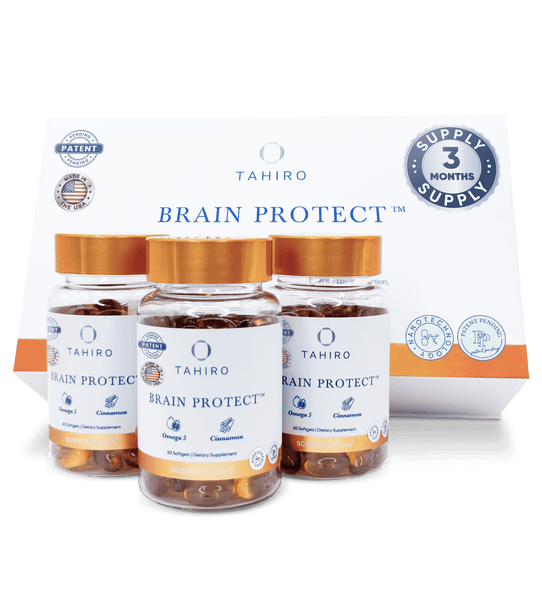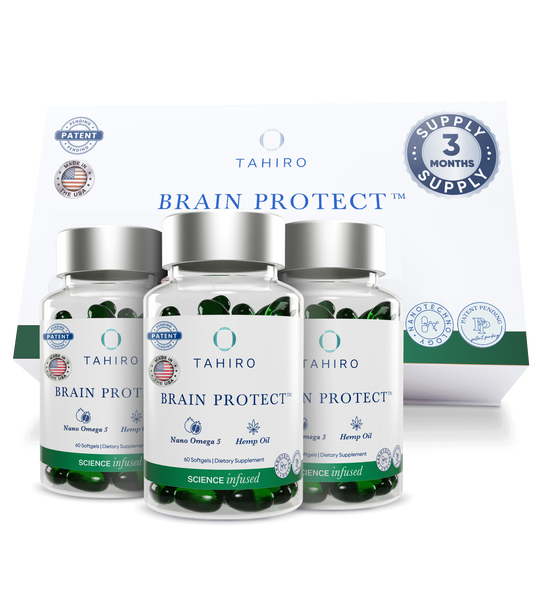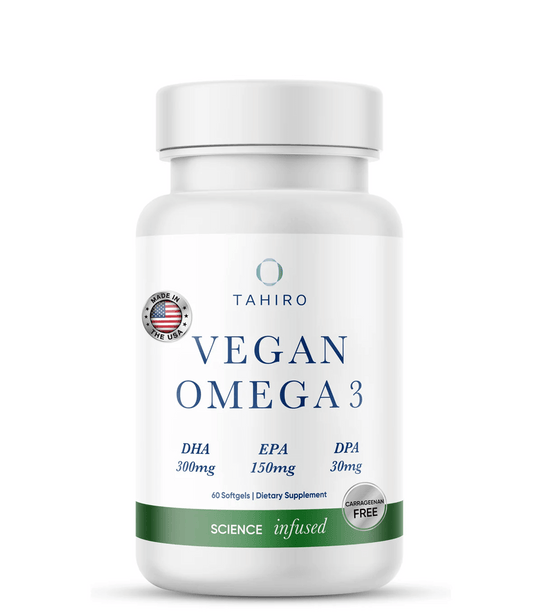Imagine a future where a simple blood test can detect Alzheimer’s disease years before symptoms appear, allowing for proactive measures to preserve cognitive health. Recent advancements in diagnostic science are making this a reality. This article explores how blood-based biomarkers, proactive brain care, and nutrition-backed solutions like Tahiro's Brain Protect are shaping the future of brain health.
A new blood test may spot Alzheimer’s years before symptoms begin
A groundbreaking blood test measuring the p-tau217 protein can detect Alzheimer’s disease years before symptoms appear—offering a powerful new tool for early diagnosis. According to a study published in JAMA Neurology, the test achieves 88–92% accuracy in identifying Alzheimer’s, outperforming traditional clinical exams and approaching the reliability of brain scans and spinal taps.
What makes this test so significant is that it tracks p-tau217, a modified form of the tau protein that builds up in the brains of people with Alzheimer’s. These tau tangles, along with amyloid beta plaques, are key features of the disease. By identifying abnormal levels of p-tau217 in the blood, the test reveals biological changes that occur long before memory loss or confusion begins.
This advancement could bring Alzheimer’s diagnostics out of expensive specialty clinics and into everyday healthcare settings. Experts like Prof. Oskar Hansson suggest that it may reduce diagnostic delays from six years to just six months—giving patients and families more time to prepare and seek treatment.
When combined with amyloid beta ratios, p-tau217 offers unmatched accuracy in detecting early-stage Alzheimer’s. This is critical, especially as new therapies emerge that work best when started early—potentially slowing the disease’s progression and improving long-term outcomes.
Why Early Brain Health Matters
Brain changes associated with Alzheimer’s begin 10–20 years before symptoms. In fact, research suggests that up to 40% of dementia cases worldwide may be preventable through changes in modifiable risk factors such as diet, blood pressure, exercise, sleep, and social engagement. Lifestyle choices made in midlife—especially between ages 40 and 65—have a powerful effect on long-term brain health.
This highlights the critical need to support brain health early. The sooner individuals understand their risk, the earlier they can take action through cognitive training, physical activity, and nutrition-based strategies—potentially delaying or even preventing cognitive decline.
Tips to Support Brain Health in Midlife
-
Regular Physical Activity: Engage in at least 150 minutes of moderate exercise weekly to enhance blood flow to the brain.
-
Balanced Diet: Adopt the MIND diet, rich in leafy greens, berries, nuts, and whole grains, to support cognitive function.
-
Mental Stimulation: Challenge your brain with puzzles, reading, or learning new skills to build cognitive reserve.
-
Social Engagement: Maintain strong social connections to reduce the risk of cognitive decline.
-
Quality Sleep: Aim for 7–9 hours of sleep per night to allow the brain to repair and consolidate memories.
-
Manage Cardiovascular Health: Control blood pressure, cholesterol, and blood sugar levels to lower Alzheimer's risk.
-
Avoid Harmful Habits: Refrain from smoking and limit alcohol consumption to support overall brain health.
Nutritional Neuroprotection and Tahiro’s Brain Protect
Tahiro’s Brain Protect supplement aligns with these findings. It features two key neuroprotective ingredients:
-
Punicic Acid: Derived from pomegranate seed oil, punicic acid has potent antioxidant and anti-inflammatory properties. A study found that participants consuming pomegranate seed oil displayed significantly better global cognition, memory, information processing, and executive functions.
-
Cinnamon Extract: Rich in antioxidant compounds, cinnamon has shown promise in reducing amyloid plaques and preserving memory. Research indicates that cinnamon extract inhibits tau aggregation and filament formation, which are characteristics of What makes Brain Protect unique is its nano-delivery system, which enhances absorption. Studies show that nano-sized punicic acid reaches the brain more efficiently than standard formulations. This delivery method maximizes impact while minimizing required dosage.
Future of Cognitive Health: Precision Nutrition and Diagnostics
As blood-based diagnostics become mainstream, they may integrate with genetic and lifestyle data to form a new era of personalized brain care. For example, individuals with APOE4, a known genetic risk factor for Alzheimer’s, may benefit from tailored interventions.
Precision nutrition, combining diagnostic insights with specific dietary plans and supplements, could transform how we manage cognitive decline. Brain Protect fits within this approach, offering science-backed ingredients in an advanced formulation.






